Not recd as per Picture on Website
Available 24/7
Available 24/7
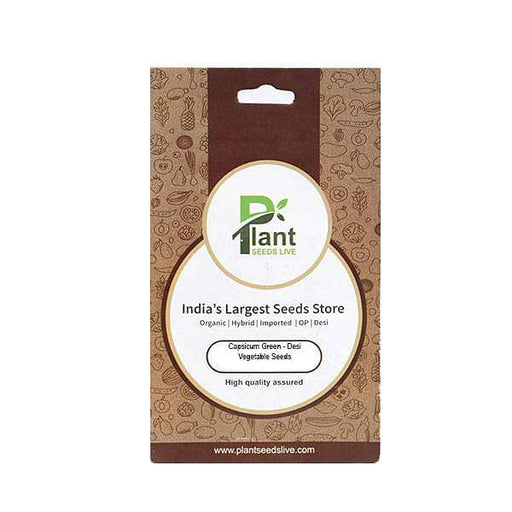
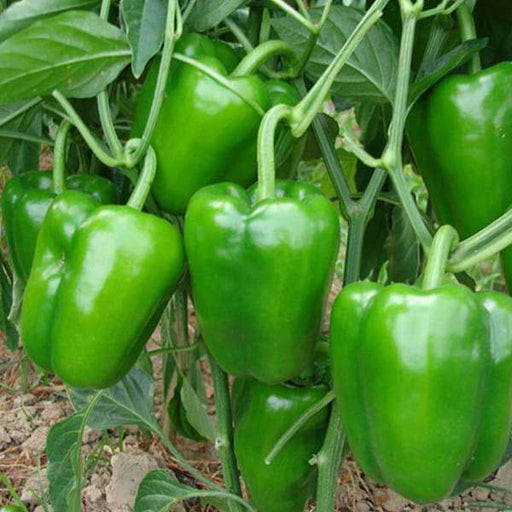 Save 25%
Save 25%
Capsicum Green - Desi Vegetable Seeds Capsicum Green, also known as bell pepper, is a vibrant and nutritious addition to your garden. Thes...
View full details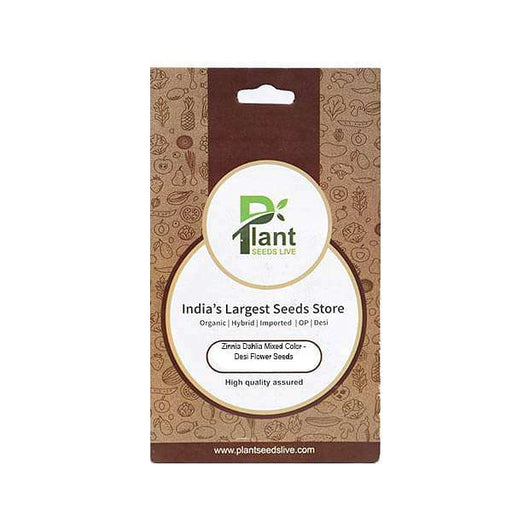
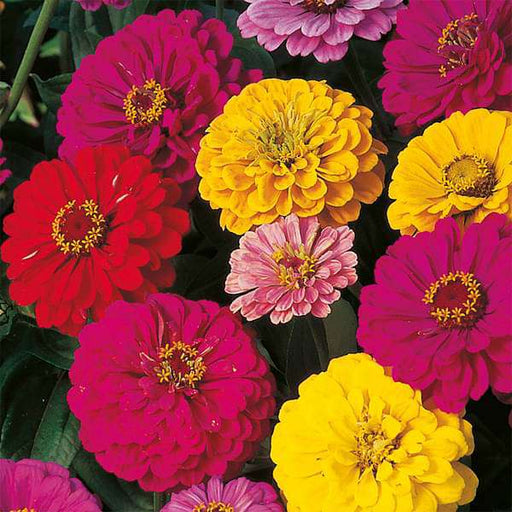 Save 25%
Save 25%
Zinnia Dahlia Mixed Color - Desi Flower Seeds Transform your garden into a vibrant tapestry of colors with our Zinnia Dahlia Mixed Color -...
View full details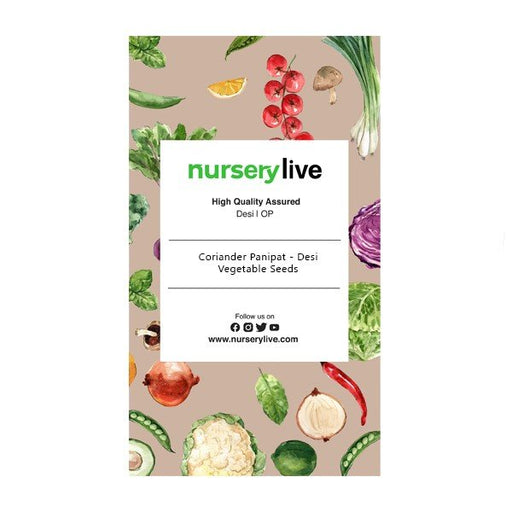
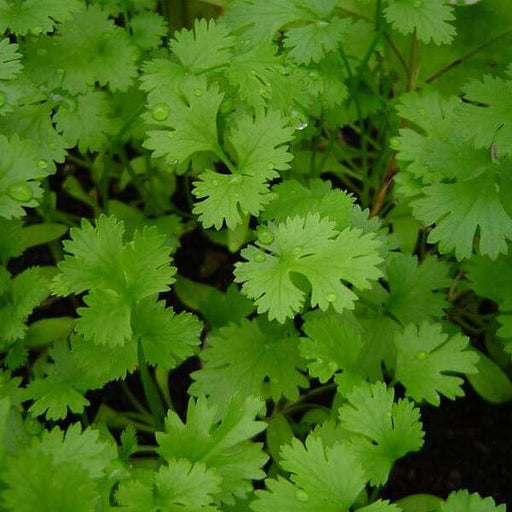 Save 25%
Save 25%
Coriander Panipat - Desi Vegetable Seeds Coriander Panipat is a premium variety of coriander seeds, cherished for its aromatic leaves and ...
View full details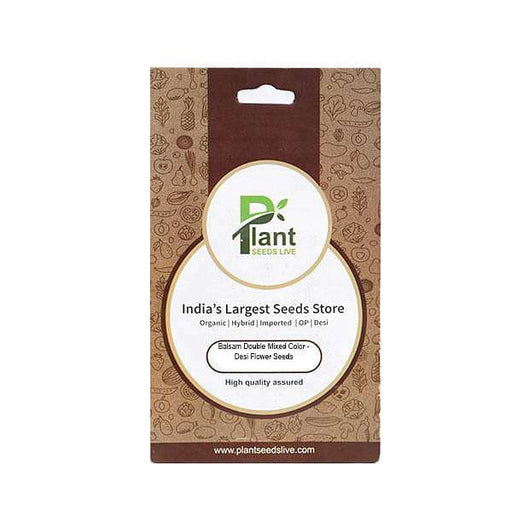
 Save 25%
Save 25%
Balsam Double Mixed Color - Desi Flower Seeds Discover the vibrant beauty of Balsam Double Mixed Color - Desi Flower Seeds, a delightful a...
View full details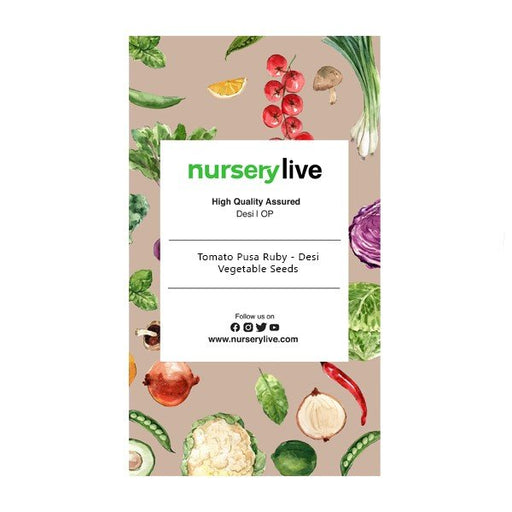
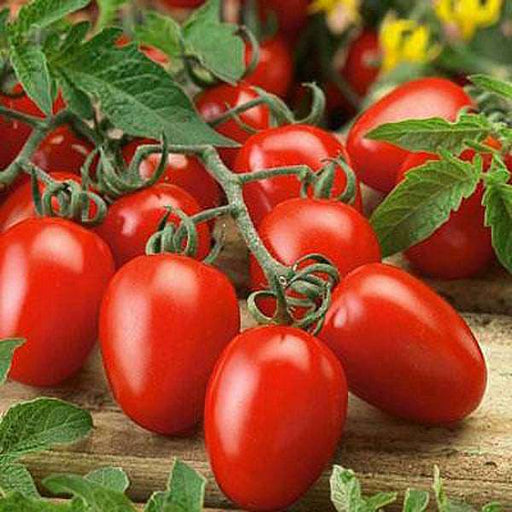 Save 25%
Save 25%
Tomato Pusa Ruby - Desi Vegetable Seeds The Tomato Pusa Ruby is a premium variety of tomato seeds, renowned for its vibrant red color, jui...
View full details
 Save 25%
Save 25%
Cherry Tomato, Cherry Tomato Honey - Vegetable Seeds Discover the delightful world of Cherry Tomato Honey seeds, perfect for home gardener...
View full details
 Save 25%
Save 25%
Spinach All Green - Desi Vegetable Seeds Introducing the Spinach All Green - Desi Vegetable Seeds, a premium variety of spinach that thriv...
View full details
 Save 35%
Save 35%
Best 6 Plants for Perfect Indoor Garden Transform your living space into a lush oasis with our curated collection of the Best 6 Plants for a...
View full details
 Save up to 50%
Save up to 50%
Mini Succulent Garden Pack Transform your space with our Mini Succulent Garden Pack, featuring a delightful collection of 4 any variety beautiful s...
View full details
 Save 30%
Save 30%
5 Best Fragrant Plants Transform your garden or indoor space into a fragrant paradise with our curated selection of the 5 Best Fragrant Plants. Th...
View full details
 Save 24%
Save 24%
Set of 2 Bonsai Looking Grafted Adeniums Transform your indoor or outdoor space with our exquisite Set of 2 Bonsai Looking Grafted Adenium...
View full details Save 45%
Save 45%
Top 4 Die Hard Succulents Pack Transform your indoor or outdoor space with our Top 4 Die Hard Succulents Pack, featuring a curated selecti...
View full details
 Save 30%
Save 30%
5 Best Indoor Plants Pack Transform your living space into a lush oasis with our '5 Best Indoor Plants Pack.' This carefully curated collection fe...
View full details
 Save 25%
Save 25%
Set of 4 Evergreen Air Purifier Plant Pack Transform your indoor space into a lush, green oasis with our Set of 4 Evergreen Air Purifier Pla...
View full detailsWelcome to our exclusive Rainy Sowing Seeds collection, where nature's rhythm meets your gardening passion. This carefully curated selection features a variety of seeds that thrive in wet conditions, ensuring a bountiful harvest even during the rainiest seasons. From vibrant wildflowers to nutritious vegetables, our seeds are perfect for gardeners looking to make the most of their rainy days.
What makes our Rainy Sowing Seeds special is their resilience and adaptability. Each seed in this collection is selected for its ability to flourish in moist soil, providing you with a diverse range of plants that not only beautify your garden but also contribute to local ecosystems. Embrace the rain and watch your garden come alive with color and life!
Growing your Rainy Sowing Seeds is easy and rewarding. With simple care instructions and a little patience, you can cultivate a thriving garden that benefits from the natural moisture provided by rainy weather. Join us in celebrating the beauty of nature and the joy of gardening, no matter the forecast!
Rainy Sowing Seeds are not just a gardening choice; they are a sustainable solution. Many of the plants in this collection have evolved to thrive in wet conditions, showcasing nature's incredible adaptability. For instance, rice, a staple food for over half the world's population, is traditionally grown in flooded fields, demonstrating the importance of water in agriculture.
Historically, cultures around the world have relied on rainy seasons for their agricultural practices. The ancient civilizations of Mesopotamia and the Indus Valley developed sophisticated irrigation systems to harness seasonal rains, paving the way for modern farming techniques. By choosing Rainy Sowing Seeds, you are participating in a time-honored tradition of sustainable agriculture.
Planting seeds that thrive in rainy conditions can significantly benefit local ecosystems. These plants help prevent soil erosion, improve water retention, and support biodiversity by providing habitats for various species. Additionally, by cultivating native plants, you contribute to the restoration of natural habitats, promoting a healthier environment for future generations.
Rainy season is the perfect time to sow seeds as the moisture in the air and soil provides the ideal conditions for germination and growth.
Sowing flower seeds during the rainy season can lead to beautiful blooms during the monsoon and beyond.
Sowing vegetable seeds during the rainy season can lead to a bountiful harvest in the months to come.
Sowing seeds in the rain can be tricky, but with the right techniques and precautions, it can be a successful endeavor.
There are several techniques for rainy sowing, including direct sowing, seedling transplantation, and pre-sowing treatment.
Pre-sowing treatment such as soaking, scarification, and stratification can help increase germination rates during rainy sowing.
Tips for rainy sowing include selecting the right seeds, preparing the soil, and protecting the seeds from excess water and pests.
Rainy sowing is preferred over dry sowing as it provides the ideal conditions for seed germination and growth.
Rainy sowing is a great option for terrace gardens, as it allows for easy access and can lead to a lush, green space.
The advantages of rainy sowing include higher germination rates, stronger seedlings, and a longer growing season.
Proper seed storage is important for successful rainy sowing. Seeds should be kept dry and protected from moisture and pests.
Soil preparation is crucial for rainy sowing, as it ensures the soil is nutrient-rich and has good drainage.
The best soil mix for rainy sowing is a well-draining mix with added organic matter such as compost or vermicompost.
While the rainy season provides natural watering, it's important to monitor the soil moisture and avoid overwatering during rainy sowing.
Common mistakes to avoid during rainy sowing include sowing too deep, using poor quality soil, and neglecting to protect the seeds from excess water and pests.
Rainy sowing is a great option for medicinal plants, as it can lead to stronger and more potent herbs.
Rainy sowing can lead to beautiful and vibrant ornamental plants, adding color and life to any garden.
Choosing the right seeds for rainy sowing involves selecting seeds that are well-suited to the specific growing conditions and climate of the region.
Rainy sowing is a great option for urban gardens, as it allows for a sustainable and eco-friendly way to grow plants in limited space.
Rainy sowing is a key aspect of sustainable agriculture, as it utilizes natural resources and minimizes the use of artificial fertilizers and pesticides.
Rainy sowing seeds provides ideal conditions for seed germination and growth, leading to higher germination rates and stronger seedlings. It also allows for a longer growing season and can lead to a bountiful harvest.
While many seeds can be sown during the rainy season, it's important to select seeds that are well-suited to the specific growing conditions and climate of the region.
Seeds should be stored in a cool, dry place and protected from moisture and pests. Proper storage can help ensure high germination rates during rainy sowing.
Covering the soil with mulch and using raised beds can help protect seeds from excess water during rainy sowing. It's also important to monitor soil moisture levels and avoid overwatering.
Direct sowing, seedling transplantation, and pre-sowing treatment such as soaking and scarification are all effective techniques for rainy sowing.
Yes, many vegetables can be grown during the rainy season, including leafy greens, cucumbers, and tomatoes.
Preparing the soil for rainy sowing involves ensuring it is well-draining and nutrient-rich. Adding organic matter such as compost or vermicompost can help improve soil quality.
Common mistakes to avoid during rainy sowing include sowing too deep, using poor quality soil, and neglecting to protect seeds from excess water and pests.
While the rainy season provides natural watering, it's important to monitor soil moisture levels and avoid overwatering. Watering frequency will depend on the specific growing conditions and climate of the region.
Yes, sowing seeds in containers can be a great option during the rainy season, as it allows for easy mobility and protects seeds from excess water and pests.
Proper seed storage, soil preparation, and pre-sowing treatment can all help ensure high germination rates during rainy sowing.
Germination times will vary depending on the specific seed and growing conditions, but generally range from a few days to a few weeks.
Yes, using organic fertilizers can be a great option during rainy sowing, as it helps promote healthy growth without the use of harmful chemicals.
Covering the soil with mulch and using natural pest repellents such as neem oil can help protect seeds from pests during rainy sowing.
Harvesting during the rainy season can be challenging due to excess moisture, but waiting for a dry spell and using proper harvesting techniques can help ensure a successful harvest.
Yes, using rainwater for watering during rainy sowing is a great way to conserve water and utilize natural resources.
Yes, using recycled materials such as old containers and bottles can be a sustainable and eco-friendly option for container gardening during rainy sowing.
Using techniques such as crop rotation, succession planting, and using cold frames can help extend the growing season during the rainy season, allowing for a longer harvest period.
Using techniques such as planting cover crops, creating contour beds, and using mulch can help prevent soil erosion during rainy sowing.
Yes, many herbs can be grown during the rainy season, including basil, mint, and parsley. Herbs can be grown in containers or directly in the soil with proper preparation and care.